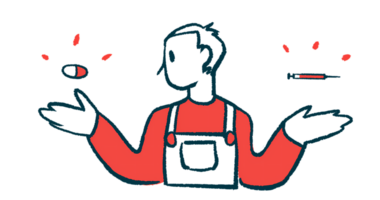Vyvgart listed for reimbursement in China for adults with gMG
Therapy was approved in China in June as an add-on treatment

Vyvgart (efgartigimod alfa) has been listed on China’s 2023 National Reimbursement Drug List (NRDL) as a treatment for adults with generalized myasthenia gravis (gMG) who test positive for self-reactive antibodies against the acetylcholine receptor (AChR) protein.
Issued each year by China’s National Healthcare Security Administration (NHSA), the NRDL is a list of medications that will be either fully or partially reimbursed by the national basic health insurance, offering access to treatment at reduced prices.
“We are grateful for this action by the NHSA, and we look forward to continuing to work with the NHSA to improve patient access and costs for high-quality treatments in China,” Josh Smiley, president and chief operating officer of Zai Lab, said in a press release.
Zai Lab gained exclusive rights of Vyvgart from Argenx to further develop and market the medication in greater China, including mainland China, Hong Kong, Macau, and Taiwan.
‘Important milestone’ for gMG patients
China’s regulatory agency approved Vyvgart as an add-on treatment for adults with gMG who test positive for anti-AChR antibodies in June, following similar decisions in the U.S., Canada, the European Union, the U.K., Japan, and Israel.
William Liang, chief commercial officer of Zai Lab, called the listing for reimbursement “an especially important milestone for gMG patients” that “underscores the clinical value Zai Lab is delivering to the medical community and to patients in China.”
In most cases of gMG, the disease is caused by self-reactive antibodies that interfere with the communication between nerve and muscle cells, leading to symptoms of muscle weakness and fatigue that worsen with exercise and improve with rest.
Given as an intravenous (into-the-vein) infusion, Vyvgart decreases the number of self-reactive antibodies in circulation by increasing the rate at which they’re broken down, thereby easing symptoms.
It can be used in people who produce anti-AChR antibodies, the most common type of MG-causing antibodies. About 85% of the 170,000 people with gMG in China are estimated to test positive for anti-AChR antibodies, according to Zai Lab.
“A key part of Zai Lab’s mission is to bring innovative medicines to patients with significant unmet medical needs in China and around the world,” Smiley said. “We will continue our efforts to expand patient access to our innovative treatments, including through NRDL coverage of different indications and formulations for our commercial products.”






